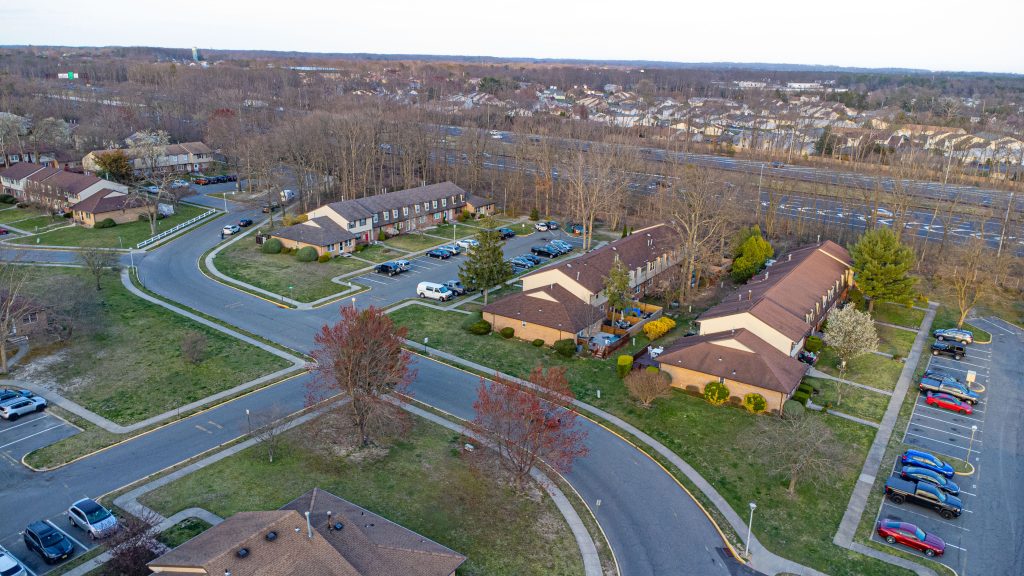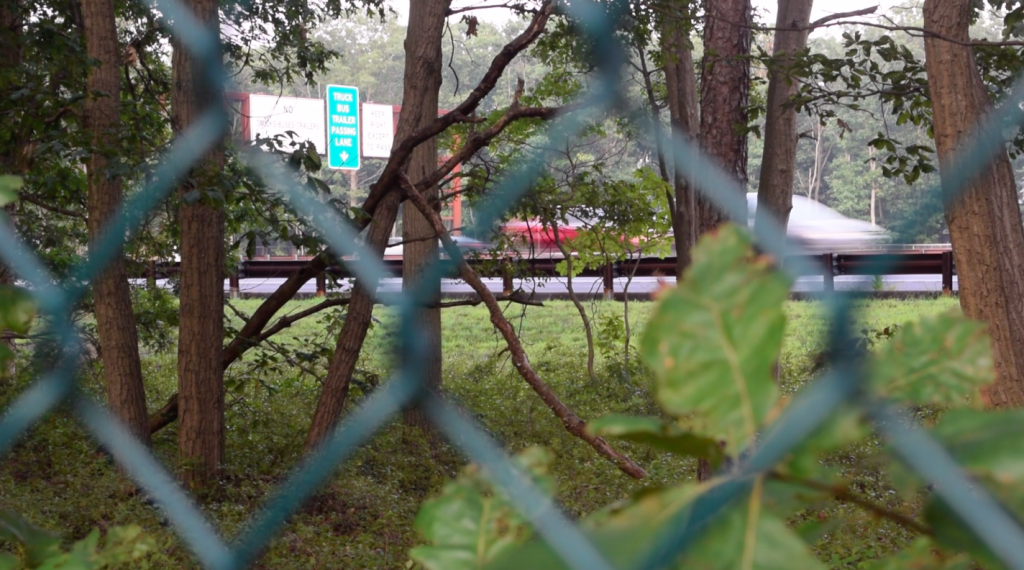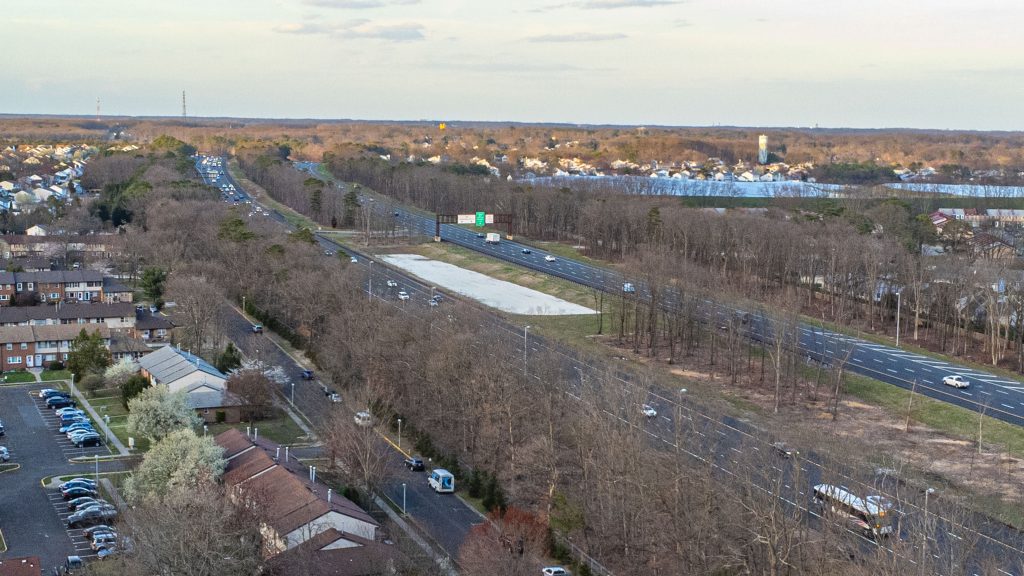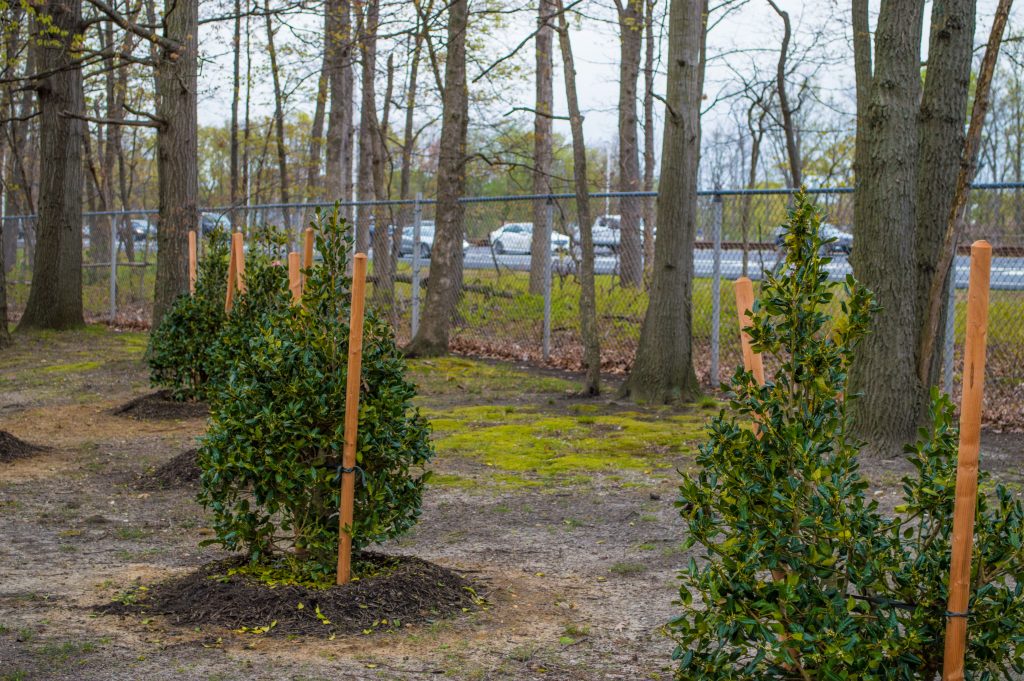After trying for the better part of a decade to advocate on behalf of a group of residents who live in a Brick Township condominium complex for a sound wall to be installed between their homes and the Garden State Parkway, officials say their options for recourse have been “exhausted.”
Several residents have lobbied for years – ever since the New Jersey Turnpike Authority completed a shoulder-widening project along the Garden State Parkway – to have a sound wall built to mitigate what they say is an unending stream of noise and exhaust pollution in the Evergreen Woods community, located in between the highway and Herborn Avenue. The residents have dutifully attended virtually every township council meeting for the last decade, traveled to Turnpike Authority meetings, battled with state officials and even attempted to begin a GoFundMe effort to raise money to retain an attorney.
Meanwhile, township officials, including Business Administrator Joanne Bergin, former mayor John Ducey and others held meetings with state-level officials during which the residents’ concerns were discussed. Even with backing from the municipal government, however, the state agency has repeatedly held that the community does not qualify for a sound wall, and the residents’ own homeowners’ association voted down efforts to hire an attorney or even allow trees to be planted in the area separating homes from the Parkway.
|
|
Township officials believed they could have pressured the state to act by conducting a noise study in the area, but the results were not what they had hoped to see.
“At our expense, at the cost of $52,250, we paid for a noise study, and it was our intention to use township funds … to take this report, and if it showed that they had to mitigate, that it exceeded the levels, we would have pounded on that fact until something was done,” said Bergin. “The noise study that we paid for, that was directed by the residents we hear from frequently and were very involved in that study, did not show that. Without that, and all these years later, there are not a lot of options for us.”
This week, one of the residents – Stephen Brill – rose to address the township council as he has many times in the past.
“The visual pollution resulting from the shoulder-widening project has increased,” he said. “Numerous trees and bushes were removed from both the north and southbound lanes, and the center median was clear-cut to install a retention basin that never has retained water.”
Brill said many of the remaining trees that were left standing after the Parkway widening project have since died.
“Recently, a large tree crashed onto a parked car and smashed its windshield,” he said. “I contacted the Turnpike Authority and they cut down more trees.”
Bergin said the township pursued a grant – known as a “no net loss” grant – to fund the purchase of additional trees that could help mitigate the sound of traffic. The township was successful in obtaining the grant, however the homeowners’ association at Evergreen Woods would not cooperate with the requirements that would have allowed the trees to be planted.
“The association would not approve the conservation easement that was required by the state Attorney General for those to be planted,” she said. “If the association changes their minds on that issue, we would be happy to revisit with the program.”
Residents still maintain the noise levels at peak times do exceed state standards that would mandate mitigation by a sound wall. The group has also spoken of concerns regarding air pollution as well as the threat of a vehicle losing control and having no effective barrier between the Parkway and their homes would stop the oncoming threat.
While residents have been in favor of more trees being planted and maintained by the state, they believe it still would not be sufficient.
“While the area between the curb and the chain-link fence is 17-feet wide, this strip cannot possibly provide enough room to mitigate the noise and visual pollution,” said Brill.
Bergin said after periods of exhaustive research, Brick officials found a single community in New Jersey that was successful in obtaining a sound wall even after sound studies indicated they did not qualify under the law. In that town, East Brunswick, the residents funded their own wall by way of a special tax assessment. But given the history of reticence on the part of the Evergreen Woods association to even allow trees to be planted, pursuing a special assessment was a no-go.
While the township will continue to advocate for its residents whenever possible, Bergin said there are essentially no more options on the table that would result in the sound wall being constructed.
“We’re always happy to talk more about it, but there is not enough justification to drive out to the Turnpike Authority and meet with people when we have exhausted our options,” she said. “Pollution is a problem everywhere. Noise exceeds thresholds for people when the area becomes busier, but there just isn’t the data for us to be heard, and we have been heard.”

Advertisement














